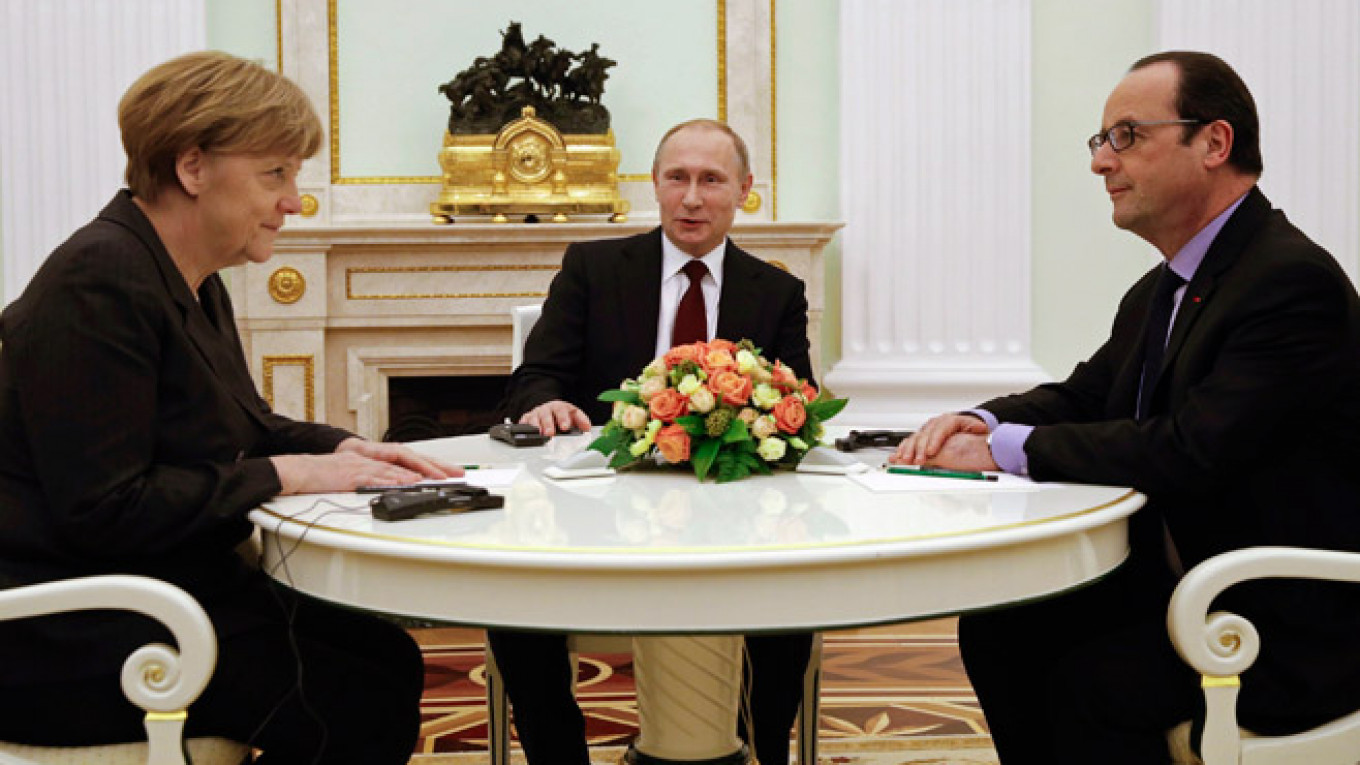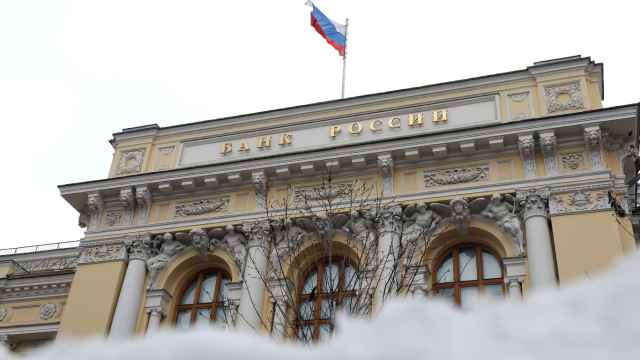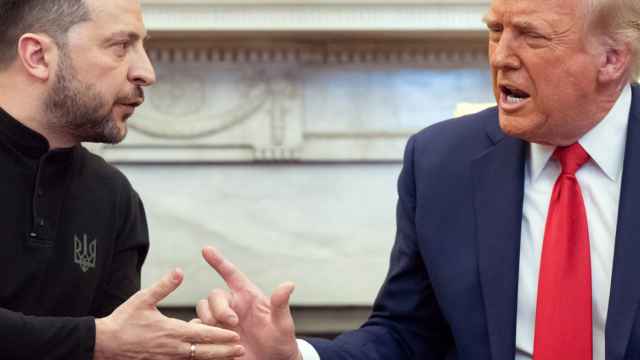U.S. President Barack Obama summed up Russia's current predicament during his State of the Union Address to Congress recently, saying that "Russia is isolated with its economy in tatters." His rhetoric caused outrage in Russia and was consistent with that of European leaders and diplomats, who have stressed Russia's growing isolation as a result of its actions in Ukraine.
So, almost one year after Russia's annexation of Crimea and the first iteration of sanctions, is Russia isolated or not?
Simple arithmetic says not. The 35 countries that have most visibly opposed Russia by imposing economic sanctions — 28 EU members, the United States, Canada, Switzerland, Norway, Australia, Japan, and Ukraine — represent only 18 percent of the UN's 193 member states. A few other states imposed travel bans against Russian individuals but stopped short of economic measures. This should hardly convince Russia that it is surrounded by enemies.
Another international shoulder shrug toward Russia's actions was the United Nations General Assembly vote in March 2014 to affirm Crimea as existing within Ukraine's borders. The resolution passed with 100 votes, but the 93 nations that abstained or voted against the resolution represented nearly two-thirds of the planet's population.
Nor is Russia cut off economically, at least not for now. Sanctions against Russia have made headlines, but the restrictions against a few Russian individuals, some Russian banks and a couple of energy companies have not cut off Russia's economy at large.
Russia's self-imposed food sanctions have more successfully isolated average Russians than any European or American measures. But even here, third-party countries are more than happy to try to fill any gaps left by these food sanctions.
Russia is, however, increasingly isolated from foreign finance. And the damage thus far done by sanctions to Russia's banking and energy industries illustrates Russia's tremendous dependence on European and American capital.
According to PwC, 117 Russian companies courted investors through initial public offerings from 2005 to 2013. Seventy-eight of those IPOs — 67 percent of the total — were made at European or American stock exchanges. Only two were made in Asia, in Hong Kong, with the other 37 made in Moscow.
Russia's largest investment banks — Renaissance Capital, Sberbank CIB, Alfa Capital Markets, and VTB Capital — acted as lead managers for 20 percent of those IPOs; for the other 80 percent, Russian companies overwhelming looked westward for assistance.
In 2013, foreign direct investment in Russia soared to a record $94 billion; an 83 percent gain on 2012. This week's release of the 2014 numbers, however, tells another story: Foreign direct investment in Russia dropped 70 percent in 2014, down to $19 billion.
While Russia may be strengthening its political ties with emerging economies, investment flows underscore their far weaker financial links. In the six years from 2007 to 2012, only 30 foreign direct investment projects came from Brazil, China and India combined. In 2012 alone, Russia received 128 projects. The top foreign investors? Europeans and Americans, by far.
As foreign capital becomes scarcer, Russia is spending more of its own foreign currency. Russian Central Bank statistics show that from December 2013 to December 2014, its international reserves dropped from $509.6 billion to $385.5 billion, a 24 percent drop in one year.
Much of the Central Bank's expenditures have bought back Russian rubles in an effort to slow the currency's dramatic decline. Its volatility, of course, serves as another direct signal of foreign investors' lack of confidence in Russian assets.
Further stymieing access to foreign money, the country's credit rating has steadily depreciated over the past several months. Most recently, Standard & Poor's downgraded Russia's rating from BBB- to BB+, below investment grade.
This assessment could hurt the country's ability to raise money through government bonds, particularly if Moody's and Fitch follow suit with further downgrades.
The isolation of Russia is neither political nor economic — the vast majority of world governments and businesses are still happy to work with the country. But Russia is indeed becoming increasingly isolated from foreign money. Until the performance of the Russian economy starts to lure investors again, this financial isolation can only end politically.
Dave Kelm researches Eurasian political economy at the Moscow State Institute of International Relations.
A Message from The Moscow Times:
Dear readers,
We are facing unprecedented challenges. Russia's Prosecutor General's Office has designated The Moscow Times as an "undesirable" organization, criminalizing our work and putting our staff at risk of prosecution. This follows our earlier unjust labeling as a "foreign agent."
These actions are direct attempts to silence independent journalism in Russia. The authorities claim our work "discredits the decisions of the Russian leadership." We see things differently: we strive to provide accurate, unbiased reporting on Russia.
We, the journalists of The Moscow Times, refuse to be silenced. But to continue our work, we need your help.
Your support, no matter how small, makes a world of difference. If you can, please support us monthly starting from just $2. It's quick to set up, and every contribution makes a significant impact.
By supporting The Moscow Times, you're defending open, independent journalism in the face of repression. Thank you for standing with us.
Remind me later.






